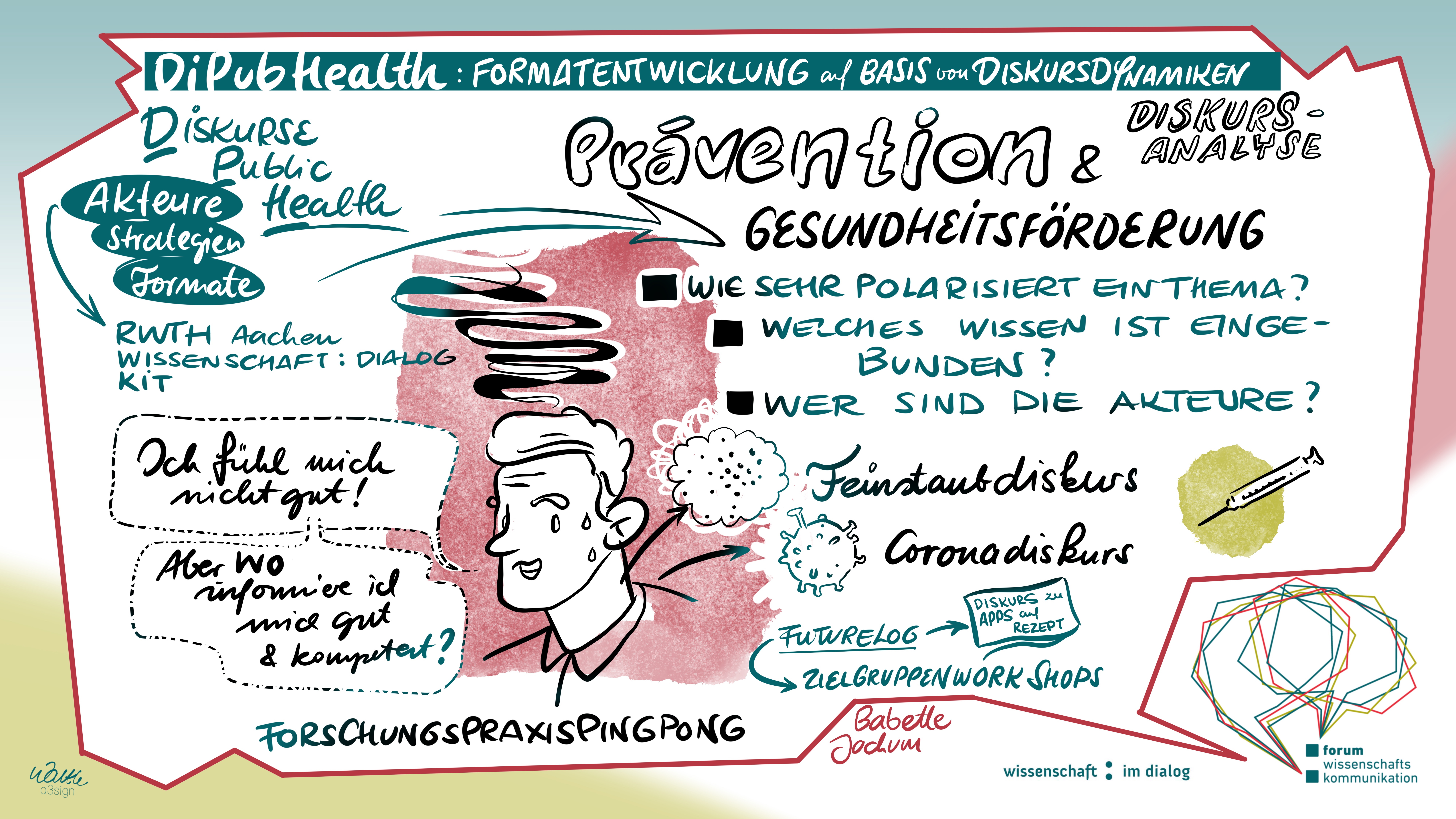DiPubHealth: Discourses on public health topics. Actors, strategies, formats
How does health communication succeed?
Science communication is confronted with a complex situation: A highly differentiated society encounters the fragmentation of public opinion on different channels because shared views and comprehensible symbols are becoming rarer in communication. This makes targeted communication more difficult. In addition, many communication activities are not sufficiently contextualized and therefore often fail, for example because "new" actors are overlooked or the fact is ignored that discourses about science are often not about knowledge transfer, but about questions of power, status and social or political influence.
Whoever knows the communicational context communicates better
This is why for companies and other collective players it is not possible to just communicate further and more. Rather, it is crucial to communicate both differently and better. At the same time, "different" and "better" depends on knowing more about the communication environment than before. This is the only way to develop communication strategies that successfully address different recipient groups and consider the interference between different channels and formats.

The DiPubHealth research project pursues two central objectives: 1. to gain a better understanding of the public discourse dynamics of selected problem-centered social debates. This requires the development of a toolbox. Secondly, this understanding is to be used to make suggestions for the targeted further development of science communication formats, to try them out and adapt them.
Research-based development: from discourse analysis to format
The project investigates whether and, if so, how a sufficiently systematic knowledge of relevant communicative contexts can be created in time for the planned communicative intervention. The focus is on research-based format development. This requires a precise set of tools (e.g. in the form of evaluation grids, typologies or criteria catalogs) in order to be able to identify the discourse dynamics and the relevant communicative amplifiers and traps. In order to develop such tools, the analysis of discourses and the development of formats go hand in hand.
The insights gained in the process flowed into the design of a practical format - the "Discourse-sensitive health communication" workshop. Here, together with intermediaries, we were able to develop initial approaches for dealing with controversial health issues in a discourse-sensitive manner.
The KIT team is responsible in particular for interdisciplinary research into the communicative products, processes and interactions between science and the public. The focus here is on actors (and their organizations) who become visible in public discourse on scientific topics. An important concern is that the research also accompanies innovative science communication formats.

Partner
Sponsors
Scientists involved
Prof. Dr. Annette Leßmöllmann, scientific spokesperson of the project


